The June 1970 memo that records Air Force General Peter R. DeLonga’s first staff meeting as Deputy Chief of Staff, Materiel at Tan Son Nhut Airfield in the Republic of Vietnam includes a section that clearly sets out the expectations of the new leader.
“The General will be rough and questioning,” it begins. “He will play the ‘Devil’s Advocate.’ Though things will get hot he will not hold a grudge. He expects the truth and facts — no B.S. He wants a straight YES or NO.”
The no-nonsense tone continues through more admonitions (“Be sure your brain is in gear before you activate your mouth” is one) and concludes with, “when I ask something to be done I mean NOW.”
The memo provides a snapshot of a dedicated, demanding but fair officer with high standards, and that’s how his son Steven DeLonga remembers his father.
“Military was first in his mind,” he recalls, although, he adds, “he was one of the few military officers who did not speak of his past successes.”
In DeLonga’s case, those successes were notable. With a distinguished career that spans the China-Burma-India theatre of operations in World War II, the Berlin Airlift, Vietnam, and beyond, Peter R. DeLonga achieved the rank of major general and was the Deputy Inspector General of the Air Force. In that post he provided the Secretary of the Air Force and chief of staff evaluations of the effectiveness of Air Force units and monitored worldwide safety policies and programs. He also directed the counterintelligence program and was responsible for security policy and criminal investigation within the Air Force.
A roster of decorations — including two Air Force Crosses, the Distinguished Service Medal, Legion of Merit with two oak leaf clusters and Air Medal with five oak leaf clusters, among others — attests to Major General DeLonga’s career achievements.
Despite his father’s professional responsibilities, Steven DeLonga remembers “We’d have dinner every night at six.” At those dinner tables, no matter where in the world the family was stationed, he learned valuable life lessons.
“My father would put a quarter on the table and ask us what it was,” DeLonga says. The object was to think before answering. “Once you made a statement,” according to his father, “you made sure it’s 100 percent correct. Your credibility is on the line, and you may never be able to get it back.”
That emphasis on integrity and honor was the foundation of his father’s philosophy, and part of the code of what DeLonga describes as “a John Wayne era when your handshake was your bond. It was a different world from what we have today.”
DeLonga closely observed how his father treated the people under his command. “My dad was known as an enlisted man’s general,” who believed they were the backbone of the Air Force. “He was very considerate” of those men.
Steven DeLonga still marvels at his 24-year-old father’s resourcefulness and courage in April 1945 when he was forced to spend 16 days in the Himalayan jungle after his plane was disabled during one of the 86 missions he flew during World War II. “He thought of other people before himself and had the presence of mind to rescue two fellow crew members,” says Delonga.
He’d parachuted into the “Tin-Tin Jungle” — so called because the terrain was strewn with the remains of American and Japanese planes. “He ate lizards, snakes, rats and talked himself out of being eaten” by tribesmen. (“Headhunters Are Friendly to Three Yankee Aviators” was one headline back home in Pennsylvania.) “I don’t know how I could have survived,” says the younger DeLonga.
His father’s was a generation that put country before considerations of financial reward, Steven observes. He cites Chuck Yeager, a good friend of his father’s, who, when asked why he continued to face the dangers of test flying despite being pursued by lucrative opportunities, replied: “I like flying. That’s my life.”
It was also a generation that saw military service as a chance to advance themselves as Americans. Peter DeLonga’s Italian-immigrant father was a foreman in a coalmine, and, says his son, “the military was an equal ground, where people were judged on merit and performance, not family.”
Though Steven DeLonga’s own military career was a brief stint in the Army (“My military bearing was non-existent”), his brother, Peter, spent a decade in service, receiving the Army’s Bronze Star for heroism in ground combat in Vietnam. His nephew, Nick, is a Marine captain who’s a veteran of tours in Afghanistan and Iraq.
“Dad would be disappointed” at how the military is generally viewed today, suggests DeLonga. “The caliber of Army recruits is probably the highest it’s ever been, but we’re not fully supporting them. We need a commitment from the executive branch to support the military for the future.”
DeLonga attributes much of his own success (he is the founder and CEO of Ste-Del Services, an Alexandria company that deals in corporate apartment rentals) to some of his father’s qualities “that carried over to me.” He knows which are the most influential: “Honesty and integrity are things I pride myself on.”
“How do you measure success?” he asks. “In business, it’s monetary. But for the older generation it was more about altruism,” citing John F. Kennedy’s famous “ask what you can do for your country” challenge. “They saw a bigger picture.”
“Honesty. Integrity. Devotion to country and to duty. That is why my father succeeded,” says Steven DeLonga. “His was a generation I was lucky to be around.”
- Major General Peter DeLonga.

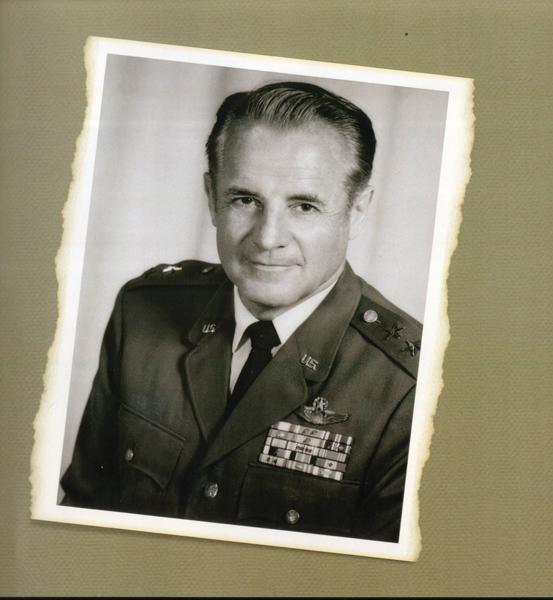
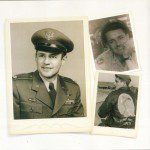
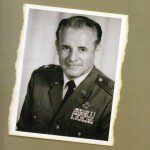
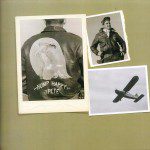
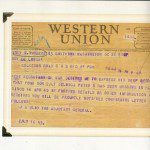
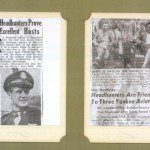
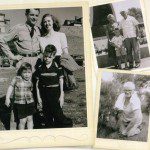
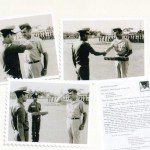

General DeLonga was of a no nonsense and respected leader, he could be demanding and intimidating at times. Great stories from his son, what I would have expected. I served under the General’s command while assigned to the 7th Air Force Headquarters in Vietnam. He was memorable.
I served as a 7th AF Elite Guard and t h e General was highly respected by everyone of the Security Police. His salute and thumbs up were a thing of pride and to try to beat the General to the salute was a game of ours and the Generals and his smile and handshake was a sign of honor and respect. It was the good time of my service in Vietnam and I will forever honor his memory.